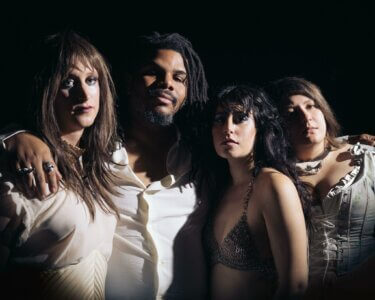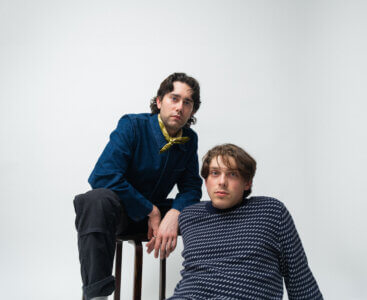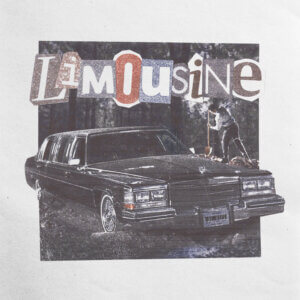Interview with Barry Johnson of Joyce Manor

Since their 2011 self-titled debut album, 4-piece band Joyce Manor have been garnering the attention and praise of the indie, punk, and emo scene alike. Their mixture of pop-punk sonics and breathless shout-along lyrics was further channeled when Epitaph picked them up and put out their third album, 2014’s Never Hungover Again. October 7 will see the band release their fourth album, Cody, which features a new lineup and a more studio-polished sound thanks to punk-producing veteran Rob Schnapf.
Northern Transmissions got a hold of Barry Johnson, Joyce Manor’s vocalist/guitarist, to talk about Cody and its studio-driven process.
NT: For the recording of Cody, you’ve said that Joyce Manor has had to change as a band. What did you mean by that?
Barry: Ooh. I don’t remember saying that exactly, but we had a member change [drummer Kurt Walcher being replaced by Jeff Enzor], but that’d be more of a literal change, you know, as opposed to trying to change our identity. Together, though, it changed the dynamic. Having a new drummer, writing songs is very different. A lot more natural, I think. I could bring songs back half-baked and we’d finish baking them there. And we’ve got more new ideas in it.
NT: Listening to one of the album’s advance singles, “Last You Heard Of Me”, it’s longer than the 2-minute-or-less songs you guys are known for. Are you making elbowroom as a means of expanding your sound?
Barry: I think the goal is always to have the song last as short or as long as it needs to, as it asks to be. I don’t want it to end before it’s satisfying, and I don’t want it to go on longer than necessary. I think in the past it felt for us like “there, that’s good”, but some other people might’ve felt like we could’ve gotten more out of it, which is probably true. Maybe some of them were a little unsatisfying, so the goal for us was to make them more so. For us as listeners too, I mean, because we had the help of Rob Schnapf, who produced it. And having Jeff around, we could let the songs go where they needed to go, and make them more satisfying.
NT: The press surrounding the album has made it to have loneliness as a major theme. How’s it work writing about something like that between four (and including Rob, five) people?
Barry: I don’t think I’d say that, that’d be someone else describing the album that way. I don’t think I ever write about loneliness. I think I write about relationships a lot, and failed relationships, so I guess I do occasionally touch on loneliness, but I wouldn’t call it a major theme. There’s a lot more lovesongs on this album, it’s a lot more…tender. Soft, I think.
NT: So bringing in Rob Schnapf—what was it like working with a seasoned producer?
Barry: Very different. It was great! I learned so much about how to make an album and how to write songs and how to record. Giving things the time to become the things they need to become. I gained a lot of wisdom that only comes from experience. When you’ve made so many good albums over so many years, you know, I felt really grateful to work with someone who had that. He’s made such amazing records, and to be in that ‘club’ with those bands who made those albums is a really nice feeling. Especially because the album came out good—I mean, if the album didn’t come out good, then you’d be a little bit like “fuck, maybe we should’ve gone with someone else” [laughs]. Rob was also fun to spend a lot of time with, he was really fun to be around, so that was also cool. It wasn’t a drag hanging out everyday. That was the magic trick: it was an enjoyable experience, so you get good results. I mean sometimes maybe you have Phil Spector pulling a gun on the Ramones, a lot of times you can have a producer being difficult or demanding, but it was none of that.
NT: More like a fifth bandmember than anything.
Barry: Absolutely, and one who’s really fun to hang out and work with.
NT: Did you feel any pressure to strike a balance between studio-level quality and a more punky DYI method?
Barry: No, not really. I think Rob just kind of got it. I don’t think he wanted to make it sound too slick, I think it’s more slick in the performances. It’s all pretty raw, not super smoothed out. We just got better takes because we had more time, and we’ve gotten to be better players over the years. It’s less sloppy because we’re less sloppy as musicians. Yeah, I think it was never like “let’s dirty it up a little bit,” it was just “let’s play these songs.”
NT: Another thing the press release mentioned was that Cody was a sort of stepping into a new, older phase of life, or rather a step away from youth. Is it a step away from your roots? And do you think punk can age gracefully in that way?
Barry: I mean I listen to our older records and they’re not super, super punk. I think maybe the recordings are just kind of raw, and maybe the vocals are kind of shouty because I’m not a super good singer, (but I’ve gotten better). They’re still melodic songs with conversational lyrics about relationships about, you know. We never started out as a fast punk band. I don’t see [Cody] as a total left-turn, I think we’re just going forward from Never Hungover Again. It’s hard to say, because it is poppier, but I thinking that’s the result of a producer who could smooth out a couple of the kinks, sonically and as far as arrangements and stuff go.
NT: So you’ve talked about not looking backwards for influences to be inspired by creatively. So are there any bands or albums you’ve had your eye on while recording Cody?
Barry: Well I think moreso it’s that I try not to revisit things, and I try not to get too hung up on things I was into in the past. I try not to just rediscover bands, but keep trying to discover new things. It’s easier to be inspired while discovering new things. You already have so much you’re attached to from your past, and it’s really tempting as a music-listener to go back because it’s great to think “aw man this song or this album totally takes me back to… 2003”. It’s a great feeling, but as far as fuelling creativity, it can do more harm than good. It’s not that I’m always trying to keep up on new bands, but I’m finding things that are new to me, and inspiring and exciting. Not necessarily futuristic [laughs]. It could be a B-side or an album I never really got into, but I’m a huge fan now. Like this band Dear Nora, they’re from the early 2000s—huge influence on Cody. Not new, but new to me.
Interview by Matthew Wardell
–
Joyce Manor, “Last You Heard Of Me”:
Latest Reviews
Tracks
Advertisement
Looking for something new to listen to?
Sign up to our all-new newsletter for top-notch reviews, news, videos and playlists.









